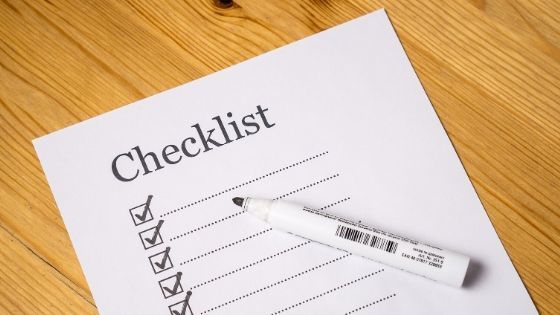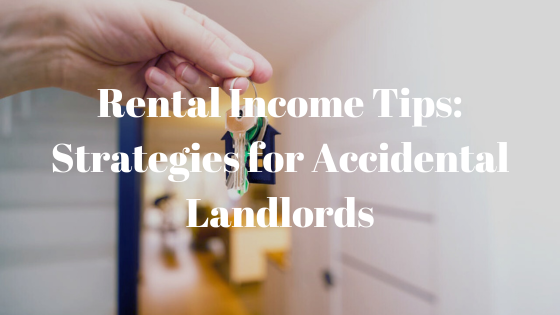How to Convert your Home Into a Rental Property
Derek Dawson • July 13, 2020

If you’re planning to move somewhere else and have no idea what to do with your former residential home, you can always convert it into a rental property! If you have no intention of selling it or property prices remain low, a rental property is a good way to earn income to pay for the property maintenance expenses while earning a neat side income in the process.
Starting a rental property business is challenging, but not impossible. It only requires you to have a lot of free time and interest in running a rental business.
You’ll also need a positive attitude when it comes to interacting with people and learning new skills. Earning a passive income is also a good way to add to your savings account.
Here are several suggestions you can follow to better prepare for your new journey of managing a rental unit:
1. Ensure your property is ready to welcome your renters.
Check your home closely and ask yourself:
• Do you need to enhance curb appeal?
• Does your home require a fresh coat of paint?
• Are the main parts of the house in excellent condition? This can refer to the structure, foundation, heater, air conditioning unit, ventilation, roofing, basement and attic.
• Are your furnishings in good shape?
• Do you need new wallpaper?
• Does your carpet need replacing?
• Do you need to buy more
energy-efficient appliances?
• Are there any upgrades you can perform in the kitchen and bathroom? Studies have shown that renovating these 2 areas can raise your rental prices.
• Check around the neighborhood. Is your property comparable to the others?
Have a walk-through inspection with a pen and writing pad ready.
List down details you can see both inside and outside the home.
2. Learn the skills and traits of a good landlord
To succeed in the rental property business, set aside time to learn and develop yourself to be a great landlord. Tenants are then reluctant to leave and move to another rental unit because of you. These are some of the characteristics of wonderful landlords:
Professionalism
Be a professional when dealing with your client. Act cordially and politely. When there are conflicts and misunderstandings, be calm and collected.
Honor the privacy of your renters and reserve judgment. Make sure you have evidence of violations and avoid accusing anyone based on speculation.
Always follow the due process of the law and never resort to illegal, self-help eviction
procedures to drive a tenant away from your rental unit. Additionally, don’t meddle with their affairs and mind your own business.
Knowledge
It pays to know the governing laws between tenants and landlords to practice your rights and respect the rights of your tenants. It’s also good to know what responsibilities both you and the tenant hold. Moreover, being compliant with the law means zero lawsuits and avoiding hefty fines.
Consistency
This means you follow the scheduled dates per notice period and the terms in your lease. Changing the date and time randomly when conducting inspections can inconvenience tenants a great deal. Strive to be consistent in your scheduled tasks.
Good Communication Skills
As a landlord, you’re required to keep in touch with your tenants from time to time. Ask them if they’re adjusting well after they’ve recently moved into your unit. Be attentive to their service requests and needs.
Organization Skills
Follow an efficient system since you’ll be handling a lot of documentation. Make sure you pay the utility bills and contractors on time.
Keep all your leases, receipts, bank statements and financial reports
safe. Upload digital copies in case of fortuitous events, which is useful, especially when tax filing is near.
3. Perform property repairs and upgrades.
If you find that you need to replace your roof, heater or air conditioning unit, do so. Before marketing your home as a rental property, everything should be in great condition.
You want to avoid inconveniencing a tenant by doing repair or replacement work once they’re already occupying your unit. You also want to leave a good impression during a property showing.
Be thorough as you perform a walk-through and note down things you will alter. Repaint the walls, add tasteful decorations and change appliances to energy-efficient ones. This is also a good time to appropriate a budget for the repairs and upgrades.
Remember to invest only in renovations that will make a difference in the rent price. You can also add inexpensive upgrades like adding backsplash tiles in the kitchen. It’s affordable yet makes the kitchen area more attractive.
4. Get the needed property insurance and permits.
Acquiring property insurance
will save you money in case of damages occurring in your rental unit that result from a fire or other disasters. You can file a claim and also reduce your liabilities as a landlord.
Any massive damages that you are not responsible for can be covered by your insurance policy. Choose a reputable insurance company that provides the best value for your money.
Bottom Line
There are logical steps to follow before you can change your home into a rental property. It requires time, energy and effort.
Most importantly, you also have to gauge whether you have enough financial resources to cover your renovations. And remember, it takes firm resolve to manage a rental property.
Contact Dawson Property Management
for any inquiries regarding this post and other property management subjects.










